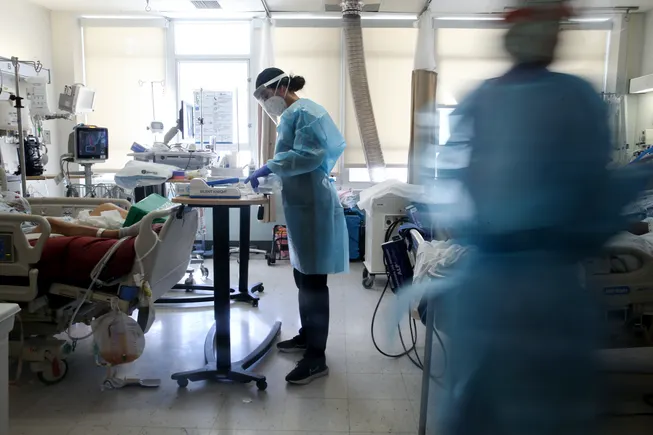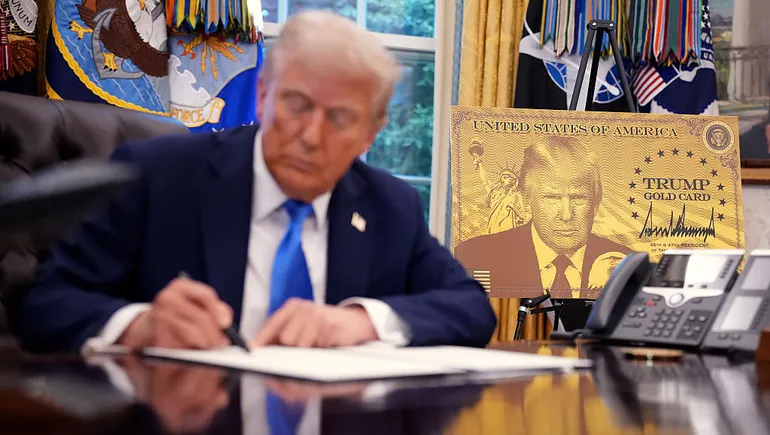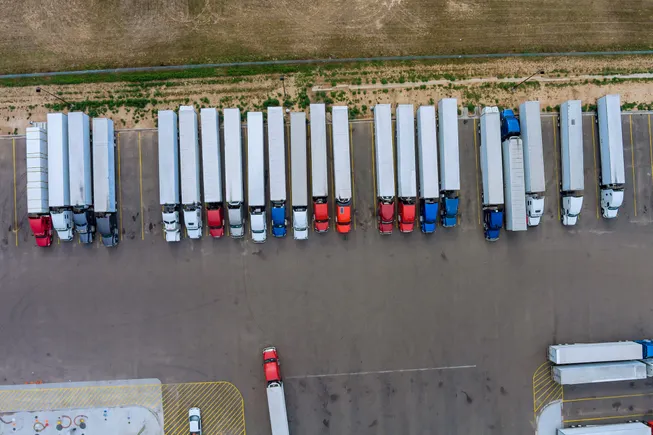Dive Brief:
- The Trump administration’s decision to place a $100,000 fee on H-1B visas exceeded presidential authority and unlawfully sidestepped the federal regulatory process, plaintiffs led by an international nurse recruitment agency alleged in a lawsuit Friday.
- The complaint in Global Nurse Force, et. al. v. Trump claimed that President Donald Trump’s Sept. 19 proclamation announcing the fee violated the U.S. Constitution’s nondelegation doctrine. They also alleged that the fee requirement’s implementation violated the Administrative Procedure Act and is arbitrary and capricious.
- The fee announcement introduced “unprecedented changes” to the H-1B program and “caused a widespread panic” among employers, plaintiffs claimed. The complaint asked the U.S. District Court for the Northern District of California to declare the proclamation unlawful and enjoin the government from implementing the new fee, among other relief.
Dive Insight:
Trump’s decision has been characterized as problematic by employers and business groups including the U.S. Chamber of Commerce, which last month asked the White House to withdraw the fee announcement out of fear that it could stifle job creation and incentivize offshoring, CFO Dive reported, among other concerns.
In his proclamation, however, Trump characterized the H-1B program as one that is “deliberately exploited” to replace skilled U.S. workers with lower-paid foreign talent. He wrote that the $100,000 fee — which the U.S. Citizenship and Immigration Services later clarified applies prospectively only to visa petitions filed on or after Sept. 21, 2025 — is meant to impose higher costs on companies in order to address abuse of H-1Bs.
Nonetheless, the announcement left employers with a range of questions regarding the fee announcement’s implementation and logistics, a source previously told HR Dive. Those concerns include determining exactly when employers must pay the fee and whether the fee applies to foreign nationals who are already present in the U.S., such as those who hold a temporary work authorization, as well as those who are overseas at the time the petition is filed.
Joined by a range of unions and industry groups as well as individual co-plaintiffs, Global Nurse Force outlined the uncertainty of the situation in its complaint. The recruiting agency said that, at the time of Trump’s announcement, it had been working to select more than 200 nurses for a Louisiana health system and had been in the process of preparing H-1B applications for those workers. The employer would not be able to afford to pay a $100,000 fee for each nurse, Global Nurse Force claimed.
“Indeed, many of Global Nurse Force’s clients hire over a hundred nurses through each interview and selection cycle, which would translate into millions of dollars in extra fees required by the Proclamation,” the complaint said. “If required to pay this fee, they will be forced to cancel international recruitment, leaving their positions unfilled.”
The White House also has sought to encourage increased pay for H-1B visa recipients in the form of wage-based visa petition selection criteria. In a move that served as a partial revival of policies sought during the first Trump administration, the U.S. Department of Homeland Security proposed last month an update to its “lottery” for selecting H-1B visas that would weight selection in favor of higher-paying job offers.






Leave a Reply